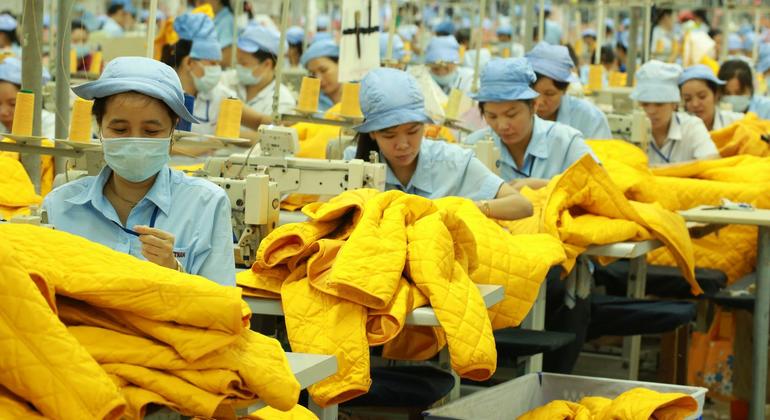On the occasion of International Zero Waste Day, UN Secretary-General António Guterres has issued a strong call to action to address the negative impact of the textile industry on the environment. Guterres emphasized that “fast fashion could kill the planet,” highlighting the urgent need to transform a sector that is one of the main sources of global pollution.
Fashion, known for being one of the most harmful industries to the ecosystem, accounts for up to 8% of global greenhouse gas emissions. Additionally, its water consumption is alarming, reaching 215 billion liters annually, equivalent to 86 million Olympic-sized swimming pools. This is compounded by the use of thousands of chemicals that affect both human health and ecosystems.
Despite these alarming statistics, clothing production and waste continue to increase at unprecedented levels, driven by business models that prioritize speed and disposable consumption over sustainability. Guterres pointed out that the fashion waste crisis is just one manifestation of a broader problem: humans generate over 2000 million tons of waste each year, enough to wrap the planet 25 times if packaged in standard containers, in addition to causing air, land, and water pollution, especially affecting vulnerable communities.
The UN leader denounced that “the rich world is flooding the Global South with garbage,” exacerbating conditions in countries that lack the proper infrastructure to manage this waste, creating environments of high pollution and dangerous working conditions for those involved in recycling.
In this context, the theme of Zero Waste Day focuses on fashion, highlighting the astonishing consumption of resources and pollution it generates. This sector is known for the speed of its trends, where many garments are discarded after being worn only a few times. Experts suggest that “doubling the lifespan of clothing could reduce greenhouse gas emissions by 44%.” However, the industry also presents opportunities to improve quality of life and sustain livelihoods.
Guterres mentioned that some designers are starting to use recycled materials and consumers are increasingly interested in sustainable options. Resale markets are booming in many parts of the world, indicating a growing awareness of the need for real change.
However, the Secretary-General warned that governments must implement policies that promote sustainability and zero waste, while companies must go beyond superficial actions by adopting concrete measures to reduce waste and improve the efficiency of their supply chains.
Consumers, on their part, can also play a crucial role by making environmentally beneficial decisions, choosing durable products and supporting second-hand markets. “There is no room for ecological imposture,” Guterres affirmed, reiterating his call for collective action.
Finally, the fight against waste requires global coordination, especially considering that over a billion people live in informal settlements without proper waste management, posing high risks to public health. Guterres concluded his message urging everyone to commit to creating a healthier and more sustainable world for all.
Source: MiMub in Spanish










